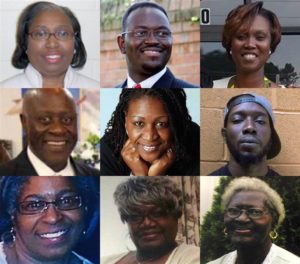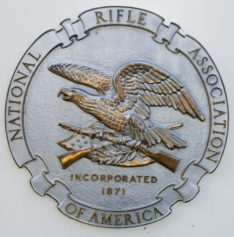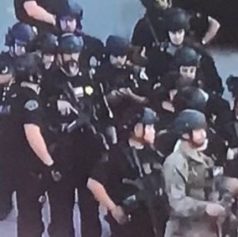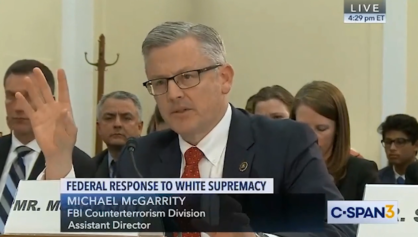The killing of nine Black congregants at Emanuel AME Church in Charleston, S.C.—known collectively as the Charleston Nine—has led to calls for forgiveness and justice. Some have demanded the removal of the Confederate flag, while still others have called for an end to systemic racism.
But one group of Black activists has taken a completely different strategy. They will not forgive, nor will they forget. However, they will shoot back.
With racially-motivated acts of violence against Black people and the resurrection of Black church burnings, some African-Americans are advocating for armed self-defense in order to protect Black lives in their communities. As was reported by Think Progress, the online movement called #WeWillShootBack was founded by Taurean “Sankofa” Brown, 28, a blogger and activist from Kinston, N.C.
“There’s a campaign to pacify Black people,” Brown said. “The point of this movement is to educate and let Black people know that we too have the right to protect our families and communities by any means necessary.”
Although Brown’s effort is a new one—not unlike the larger #BlackLivesMatter movement that is addressing police brutality and violence against Black bodies— the concept of armed resistance in the Black community has been with us for quite some time. Although nonviolent, peaceful social change emerged as the dominant narrative of the civil rights struggle of the 1960s, militant self-defense served as a crucial part of that movement.
For example, in his 2013 book, We Will Shoot Back: Armed Resistance in the Mississippi Freedom Movement, Akinyele Omowale Umoja notes that there is a long history of armed resistance in the Southern Black Freedom Struggle. Umoja, a Professor and Chair of the Department of African-American Studies at Georgia State University, writes that Blacks in Mississippi had a long tradition of self-defense even before the Civil Rights Movement. Given the hostility of the Jim Crow South, Black people required protection from the Ku Klux Klan, white rapists and lynch mobs. Moreover, the armed and nonviolent components of the Civil Rights Movement coexisted, sometimes uneasily, but the two also worked together. Umoja argues that nonviolent civil rights groups such as SNCC relaxed or reexamined their stance on nonviolence, due in no small part to their reliance on Black self-defense groups for protection.
Formed in 1964 in Jonesboro, La., the Deacons of Defense and Justice was founded to protect the Congress of Racial Equality (CORE) against Ku Klux Klan violence. Consisting mostly of World War II and Korean War veterans, the Deacons provided protection to civil rights workers and Black people who wanted to register to vote.
The most well-known example of Black armed resistance was the Black Panther Party for Self-Defense, founded in Oakland, Calif. by Huey Newton and Bobby Seale. FBI Director J. Edgar Hoover called the Black Panthers “the greatest threat to the internal security of the country,” and used his COINTELPRO program to infiltrate and neutralize the Panthers and other civil rights organizations, and “prevent the rise of a ‘messiah’ who could unify and electrify the militant Black nationalist movement.” The group was originally formed to patrol Black neighborhoods and protect them against police brutality. Although the group was known for its public display of firearms and active use of the second amendment, the Panthers also maintained a variety of social service programs, such as free breakfast for children, health clinics and shoes for children.
Further, the Black Panthers were a socialist organization that developed a ten-point program calling for full employment, housing, education, exemption from military service, an end to the white robbery of the Black community and other items. And they wanted all Black men released from prison.
Whether in the 1960s or the twenty-first century, those who find limitations to the traditional civil rights approach to justice have found other ways of reaching the end goal. #WeWillShootBack shows that those with their backs against the wall will take direct action against domestic terrorism when the government is unable or unwilling to do the job.



